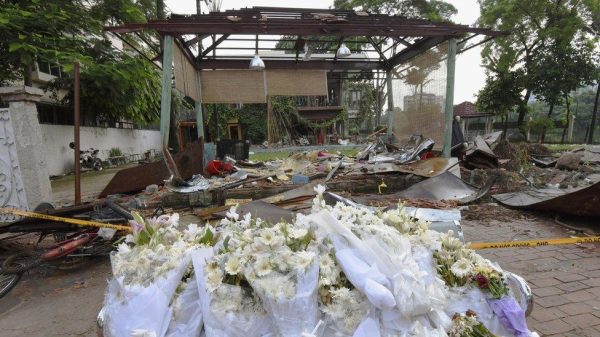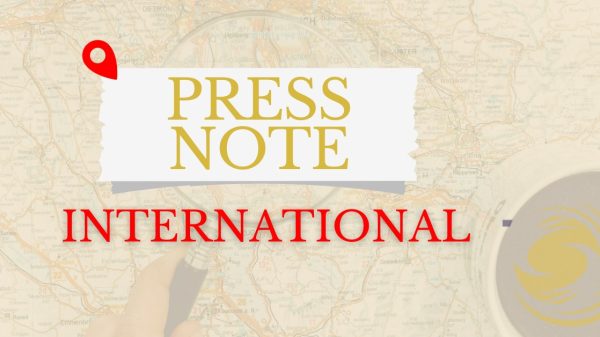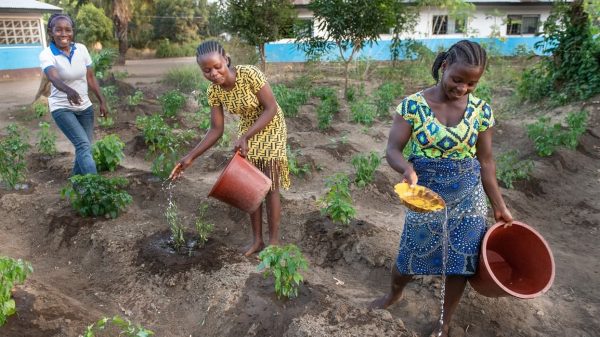Attack in Kashmir and Economic Warning for South Asia: What It Means for Bangladesh

- Update Time : Saturday, April 26, 2025

Kashmir Attack: The Rise of Religious Extremism Once Again
A horrific religious fundamentalist terrorist attack has taken place in Kashmir, India, targeting innocent tourists. Even more concerning is that the attackers were driven by religious extremism. Religious terrorists are often more dangerous than nationalist or ideological ones because they believe their actions have divine consequences in the afterlife.
Following the attack, India’s Prime Minister immediately returned home, cutting short his foreign visit. The opposition leader has remained in constant contact with the Home Minister. As of this writing, authorities have yet to outline a complete response. The Pakistan-based group Lashkar-e-Taiba, designated internationally as a terrorist organization, has claimed responsibility.
This large-scale attack has triggered global concern, forcing nations to rethink security strategies concerning South Asia. The issue is now under the close scrutiny of international counter-terrorism experts.

World Bank Warns: Afghanistan, Pakistan, and Bangladesh Face Bleak Economic Forecasts
Just a day after the Kashmir attack, the World Bank released its 2025 forecast for South Asia. It revealed Afghanistan is expected to experience the region’s lowest economic growth at just 2.2%, followed by Pakistan at 2.7% and Bangladesh at 3.3%. The rapid decline in Bangladesh’s position is alarming—it had been part of the 6%+ growth club less than a year ago.
While the past may offer context, the present dictates the future. These projections demand immediate attention.
Poverty and Religious Terrorism: A Dangerous Nexus
Poverty is a key enabler of religious terrorism. Impoverished regions become fertile grounds for extremist ideologies. In South Asia, Afghanistan currently stands as the poorest country, without a legitimate government and under the control of leaders designated as terrorists by the international community.
Afghanistan’s extremist rulers have extended their activities beyond borders—impacting Pakistan, Western countries, and even China. With international aid largely withdrawn due to U.S. policy shifts, Afghanistan’s crisis is worsening, feeding into global instability.

Pakistan’s Fragile State: A Breeding Ground for Extremism
Pakistan is no less concerning. Over 48 active extremist organizations, including Lashkar-e-Taiba, operate within its borders. Another estimated 100 religious militant groups are said to be inactive, though their true status remains unclear.
Political instability, a weak central government, and pending U.S. Congressional bills threatening sanctions have weakened Pakistan further. The IMF and World Bank have reduced support, citing the government’s failure to meet reform conditions. This combination of poverty, weak governance, and instability creates ideal conditions for terrorism to grow.

Bangladesh’s Growth Slows Amid Political and Economic Unrest
The World Bank’s projected 3.3% growth for Bangladesh is attributed to its political unrest and ongoing economic crisis. A neutral, inclusive election could have eased tensions, but the interim government over the past eight months has not pursued that path. The situation remains unclear to all political parties.
Since the government transition, several convicted extremists have been released. Over a million Rohingya refugees reside in Bangladesh, with known militant factions among them. Recently, the government arrested one such leader. Major global outlets like The New York Times and The Guardian report that extremists are gaining strength amid the instability.

IMF Loan Delay and U.S. Tariffs Threaten Bangladesh’s Economy
The IMF has delayed its promised loan disbursement to Bangladesh due to unmet conditions. Without the backing of both the IMF and World Bank, Bangladesh’s economic recovery becomes extremely difficult.
Moreover, U.S. tariff policies are hurting small economies. Bangladesh currently faces nearly 24% in tariffs for exports to the U.S. If the suspended 10% hike resumes after its 90-day delay, the damage to Bangladesh’s economy will be significant.

The Global Community Must Act to Prevent a Terrorism Surge in South Asia
As Afghanistan, Pakistan, and Bangladesh face deepening economic crises, the global community must act to support stability in South Asia. Poverty, political chaos, and weak governance are directly linked to the rise of religious extremism.
Ignoring these signs may lead to a resurgence of terrorism—not just regionally, but globally.
Author Bio:
Swadesh Roy is a state award-winning journalist and editor of Sarakhon and The Present World.











Leave a Reply